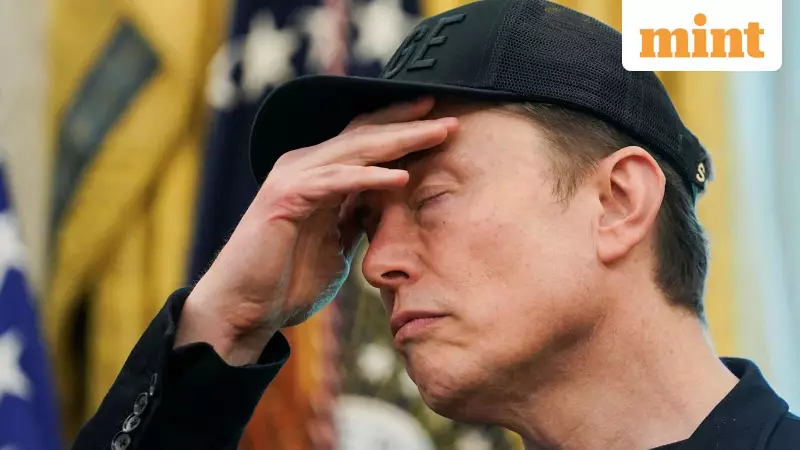
Chief executives across America are facing an unprecedented challenge: navigating the turbulent waters of Donald Trump's presidency. Nearly a year after his election victory over Kamala Harris, corporate leaders have developed a survival strategy best described as 'shut up, suck up, and think twice before standing up to the president.'
The Corporate Roller-Coaster Ride
Imagine you fell asleep on November 6th, 2024, right after Trump's victory, and woke up today. The economic snapshot would appear glorious at first glance. American GDP is outgrowing the rest of the rich world, corporate-tax cuts are in place, and Wall Street veterans lead treasury and commerce departments. The S&P 500, despite recent wobbles, beats analyst forecasts thanks to the artificial-intelligence boom, reaching about $60 trillion in aggregate market value from $50 trillion on November 5th, 2024.
However, the journey to this point has been anything but smooth. The path included a $7 trillion market tumble between election day and the start of Trump's trade war. The president raised import duties in April on most trading partners, then adjusted them unpredictably. The de facto average tariff rate for goods stands at 10%, higher than anticipated.
The Shut Up Strategy
Most businesses prioritize staying 'out of the cross-hairs,' as one investment banker revealed. American consumers might express dissatisfaction in surveys but remain spendthrift in stores. Companies believe they can thrive if they avoid giving Trump reasons to single them out—whether for punishment or even praise, which can quickly turn into censure.
The consequences of falling out of favor are severe. When Elon Musk clashed with Trump in June, the president transformed from Tesla's chief salesman—once using the White House as its dealership—to threatening its federal subsidies. Similarly, after defending Apple against EU regulators in January, Trump warned of 25% tariffs on iPhones when the company announced plans to assemble more devices in India rather than domestically.
The Suck Up Approach
When invisibility isn't an option due to company size or tariff exposure, corporate leaders turn to ingratiation. This ranges from comical to cringeworthy demonstrations of loyalty. Tim Cook presented Trump with a gold trinket commemorating Apple's additional $100 billion investment in American business. More notably, Apple joined at least 20 other companies—from tech rivals to old-economy stalwarts like Union Pacific Railroad—in donating to Trump's $300 million White House ballroom.
Union Pacific and Norfolk Southern, currently seeking an $85 billion merger approved by shareholders on November 14th, were among the donors. Many executives disliked this approach, with one financier recalling a CEO's resigned comment: 'It is what it is.'
Even companies avoiding direct donations find ways to align with presidential priorities. JPMorgan Chase pledged $1.5 trillion toward 'security and resiliency' initiatives important to Trump, contrasting with its $2.5 trillion climate-friendly commitment under Biden.
Navigating the New Normal
Corporate lawyers now advise clients with significant mergers to inform the White House well before announcements. 'The need for such forward planning is new,' notes a veteran New York lawyer. Unlike the Biden administration's bunker-like approach, Trump's White House maintains constant business communication.
'Speaking publicly is not effective,' reveals one Wall Street CEO. 'We can talk to the president any time. We are just not doing it through the media.' A healthcare industry counterpart confirms receiving access to Trump within a day whenever requested.
The strategy involves presenting solutions rather than problems to the president, while directing concerns about tariffs, state interventionism, and slow deregulation to relevant cabinet officials—primarily Treasury's Scott Bessent and Commerce's Howard Lutnick, though their effectiveness receives mixed reviews.
Companies universally avoid direct confrontation with the administration. While quietly supporting small firms challenging Trump's tariff powers in the Supreme Court, no major corporation has filed formal briefs. The US Chamber of Commerce alone challenged Trump's new $100,000 fee for H1-B skilled-worker visas, providing safety in numbers.
What CEOs fear most isn't just reprisals but continued unpredictability. 'Trump and his government do policy deal by deal,' complains one executive. This forces companies to focus on wrangling exemptions and war-gaming responses rather than product development. With three years remaining in Trump's term, corporate America is gradually mastering this unusual dance of corporate diplomacy.






